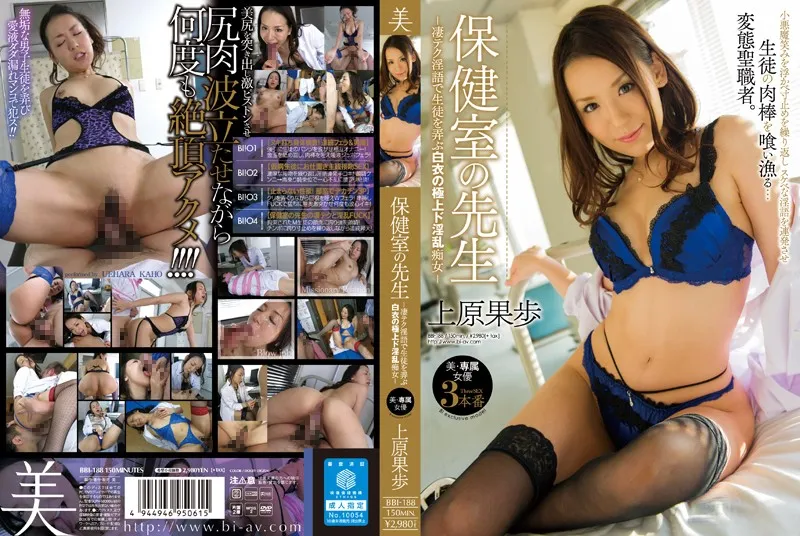BBI-188 Infirmary Teacher – Terrible In Tech Dirty Of White Coat That Play With Student Finest De Nasty Slut – Kaho Uehara
In recent times, concerns about educator conduct and the use of technology within school environments have garnered significant attention. Among the numerous cases that have come into the spotlight, the controversy surrounding Kaho Uehara, a teacher associated with BBI-188 Infirmary, has sparked widespread debate. Allegations have emerged suggesting inappropriate behavior and misconduct, raising questions about professionalism, privacy, and the safety of students. This article aims to provide a comprehensive overview of the background and role of Kaho Uehara, examine the allegations against her, analyze the implications of technology use in educational settings, assess the impact on students, review public and media responses, and conclude with recommendations for maintaining high standards of conduct in schools.
Overview of BBI-188 Infirmary Teacher Kaho Uehara’s Background and Role
Kaho Uehara has served as an infirmary teacher at BBI-188, a school known for its rigorous academic programs and progressive approach to education. Her role primarily involved attending to students’ health needs, providing first aid, and offering health advice during school hours. With a background in nursing and years of experience working in educational health services, Uehara was regarded as a dedicated professional committed to student well-being. She was also involved in health education initiatives, aiming to promote awareness about personal hygiene and wellness among students. Her position granted her access to sensitive student information and opportunities to interact closely with pupils, which necessitated a high level of professionalism and discretion. Over time, she developed a reputation as a caring, approachable figure within the school community, which contributed to her trusted status among students and staff alike.
Examination of Allegations Surrounding Kaho Uehara’s Behavior in the Infirmary
Recent allegations have cast a shadow over Uehara’s reputation, accusing her of inappropriate conduct during her time in the infirmary. Reports suggest that she engaged in unprofessional behavior, including playing with students in ways that are considered highly inappropriate and crossing boundaries of trust. Specific claims allege that she used her position to manipulate or exploit students, engaging in actions that are deemed morally and ethically unacceptable. The accusations also include allegations of neglecting her duties by prioritizing personal interactions over professional responsibilities. Investigations are ongoing, and some students or former students have come forward with testimonies describing uncomfortable or concerning experiences. It is important to note that these allegations have yet to be fully substantiated through official channels, and all parties involved are entitled to a fair process. Nonetheless, the claims have sparked widespread concern about safeguarding standards within the school.
Analysis of Technology Use and Privacy Concerns in the Classroom Setting
A key aspect of the controversy involves the alleged misuse of technology by Uehara in the infirmary and classroom environments. Reports indicate that she may have employed electronic devices to record or observe students without their consent, raising serious privacy issues. The improper handling of digital tools—such as recording videos or taking photographs—can violate students’ rights to privacy and create an environment of mistrust. The proliferation of smartphones and recording devices has made it easier for educators to document incidents, but it also necessitates strict guidelines to prevent abuse. Privacy concerns are compounded when sensitive information is involved, especially in health-related settings. Educational institutions are increasingly emphasizing the importance of safeguarding student data and ensuring that technology use aligns with ethical standards. The controversy surrounding Uehara underscores the necessity for clear policies, regular training, and vigilant oversight to prevent privacy breaches and protect students from potential harm.
Impact of Teacher Conduct on Student Well-Being and Learning Environment
The behavior of teachers significantly influences the overall atmosphere within a school, affecting student well-being and learning outcomes. Allegations against Uehara, if proven true, could have profound negative effects on students’ mental health, sense of safety, and trust in educational staff. A hostile or uncomfortable environment may lead to increased anxiety, reluctance to seek help, or disengagement from school activities. The perception of misconduct can also undermine the authority of educators, making it more difficult to maintain discipline and foster a positive learning environment. Conversely, the presence of a professional and trustworthy teacher promotes students’ confidence, emotional security, and academic success. Ensuring that staff uphold high standards of conduct is essential for creating a safe and nurturing educational space where students can thrive both academically and emotionally.
Public Response and Media Coverage of the Kaho Uehara Controversy
The allegations against Kaho Uehara have attracted considerable media attention, with coverage varying from cautious reporting to sensationalized stories. Social media platforms have played a role in spreading information—and misinformation—about the case, leading to heightened public scrutiny. Parents, students, educators, and advocacy groups have expressed concern about the safety of students and the integrity of school staff. Some community members call for thorough investigations and stronger safeguards, while others worry about the potential damage to reputations before due process is complete. Media outlets have highlighted the importance of transparency and accountability but also emphasize the need to avoid rushing to judgment. The controversy has reignited discussions about teacher training, student privacy, and the responsibility of educational institutions to prevent misconduct and respond appropriately when allegations arise.
Conclusions and Recommendations for Ensuring Professional Conduct in Schools
To prevent incidents like the one involving Kaho Uehara, schools must adopt comprehensive policies that promote professional conduct and protect student rights. Regular training sessions should be implemented to educate staff about ethical boundaries, privacy laws, and appropriate use of technology. Schools should establish clear reporting mechanisms for students and staff to report concerns without fear of retaliation. Additionally, oversight committees and audits can help monitor staff behavior and ensure compliance with safety standards. Building a culture of accountability and transparency is vital for maintaining trust within the school community. Parents and students should also be informed about their rights and the procedures in place to address misconduct. Ultimately, fostering an environment where professionalism, respect, and safety are prioritized will help safeguard the well-being of students and uphold the integrity of educational institutions.



